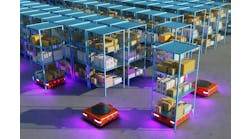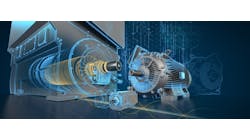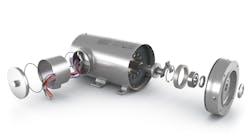When you have $5.3 billion in your piggy bank, a bit of a shopping spree is almost inevitable. Folks wondering how ABB was going to spend all that cash now have a partial answer. On the last day of November 2010, ABB and U.S. electric motor and drive giant Baldor announced that they had agreed that ABB will acquire Baldor in an all-cash transaction valued at approximately $4.2 billion, including $1.1 billion of net debt.
Just a week later, the Swiss company announced that it had acquired Insert Key Solutions (IKS) of Chadds Ford, Pa., a privately owned, specialist software provider, adding IKS' solutions to its recently acquired Ventyx software portfolio. IKS specializes in delivering software solutions for process improvement, increased equipment reliability and operational performance in power generation plants, and transmission and distribution networks. The company has an extensive customer base in the thermal and nuclear power sectors, and a staff of 50 people. The terms of the purchase were not disclosed.
Under the terms of the Baldor agreement, which has been unanimously approved by both companies' boards of directors, ABB will commence a tender offer to purchase all of Baldor's outstanding shares for $63.50 per share in cash. The transaction represents a 41% premium compared to Baldor's closing stock price on Nov. 29, 2010. The board of directors of Baldor will recommend that Baldor shareholders tender their shares in the tender offer. The deal is expected to close in the first quarter of 2011.
The transaction closes a gap in ABB's automation portfolio in North America by adding Baldor's NEMA motors product line and positions the company as a market leader for industrial motors, including high-efficiency motors. Baldor also adds a growing and profitable mechanical power transmission business to ABB's portfolio.
The transaction will substantially improve ABB's access to the industrial customer base in North America, opening opportunities for ABB's wider portfolio, including energy-efficient drives and complementary motors. This move comes at a time when regulatory changes in the United States and other parts of the world will accelerate demand for energy-efficient industrial motion products. The acquisition will strengthen ABB's position as a leading supplier of industrial motion solutions, and will also enable ABB to tap the huge potential in North America for rail and wind investments, both of which are expected to grow rapidly in coming years.
"Baldor is a great company with an extremely strong brand in the world's largest industrial market," said Joe Hogan, ABB's CEO. "Baldor's product range and regional scope are highly complementary to ours and give both companies significant opportunities to deliver greater value to our customers."
Baldor is based in Fort Smith, Ark., and is a leading supplier in the large North American industrial motors industry. In addition, Baldor offers a broad range of mechanical power transmission products, such as mounted bearings, enclosed gearing and couplings, used primarily in process industries, as well as drives and generators. The Baldor drives business will be combined with the larger ABB drives business to achieve even further penetration of this important product line.
John McFarland, chairman of the board and CEO of Baldor, says that ABB will locate its motor and generator business headquarters for North America in Fort Smith. Ron Tucker, Baldor's current president and COO and CEO-designate, will run Baldor, including the mechanical power transmission products business and ABB's motor and generator business in North America, after the transaction is completed.
Baldor employs approximately 7000 people and reported an operating profit of $184 million on revenue of $1.29 billion in first nine months of 2010. This represents an increase of 30% in operating profit and 11% in revenue over the comparable period in 2009.
The U.S. market for high-efficiency motors is expected to grow 10% to 15% in 2011 on the back of new regulations, effective in December this year. Likewise, similar regulations in Canada, Mexico and in the European Union are expected in 2011.



